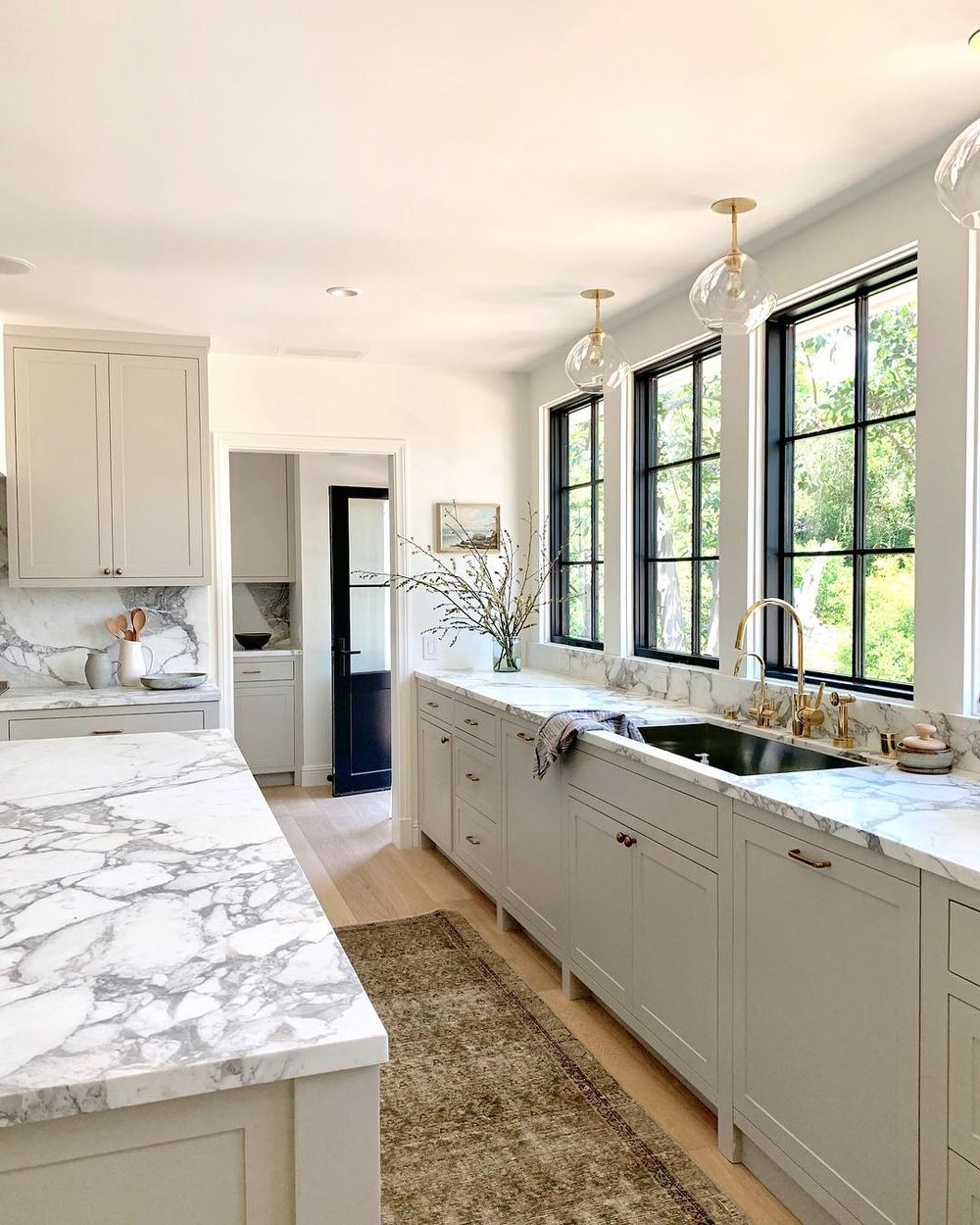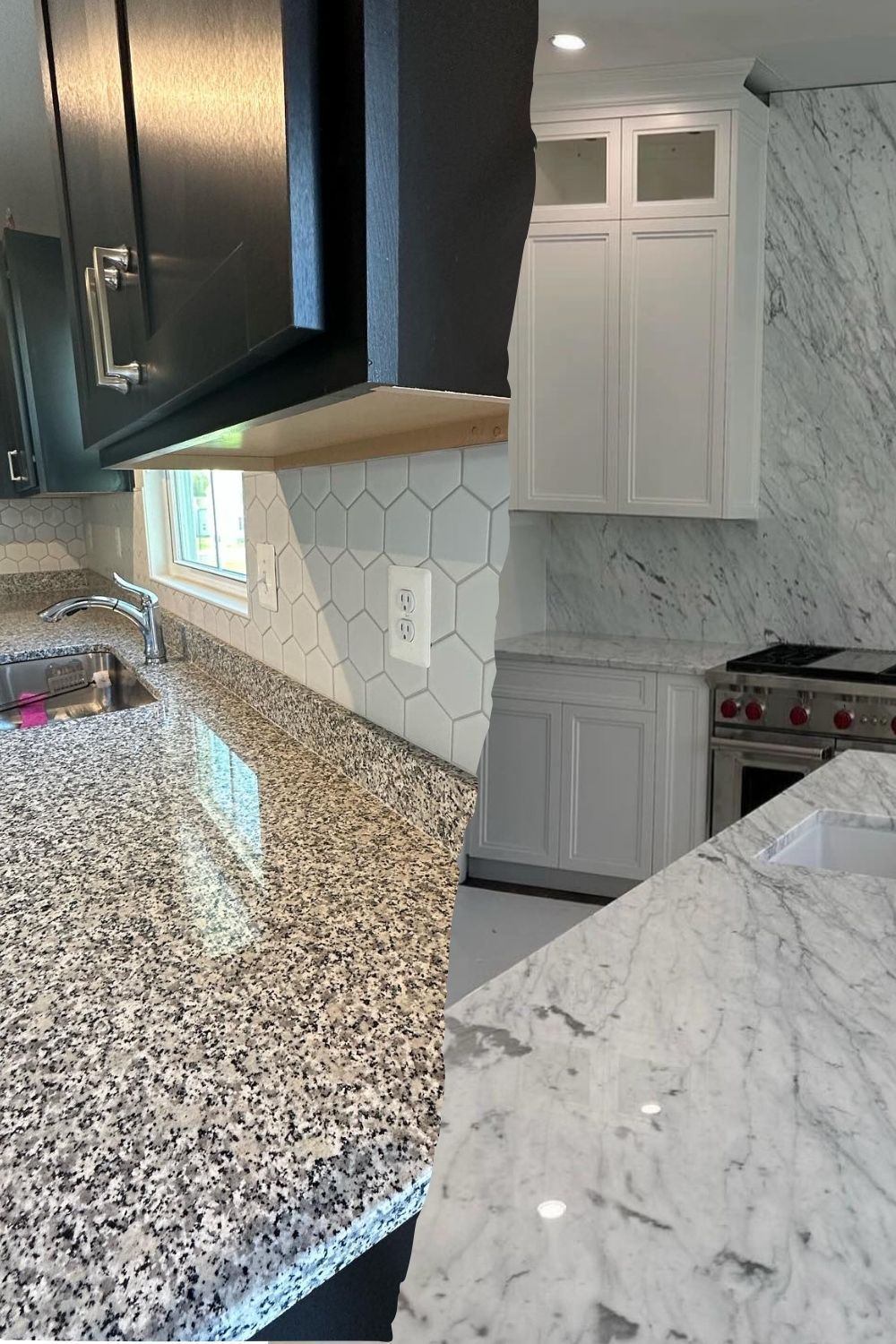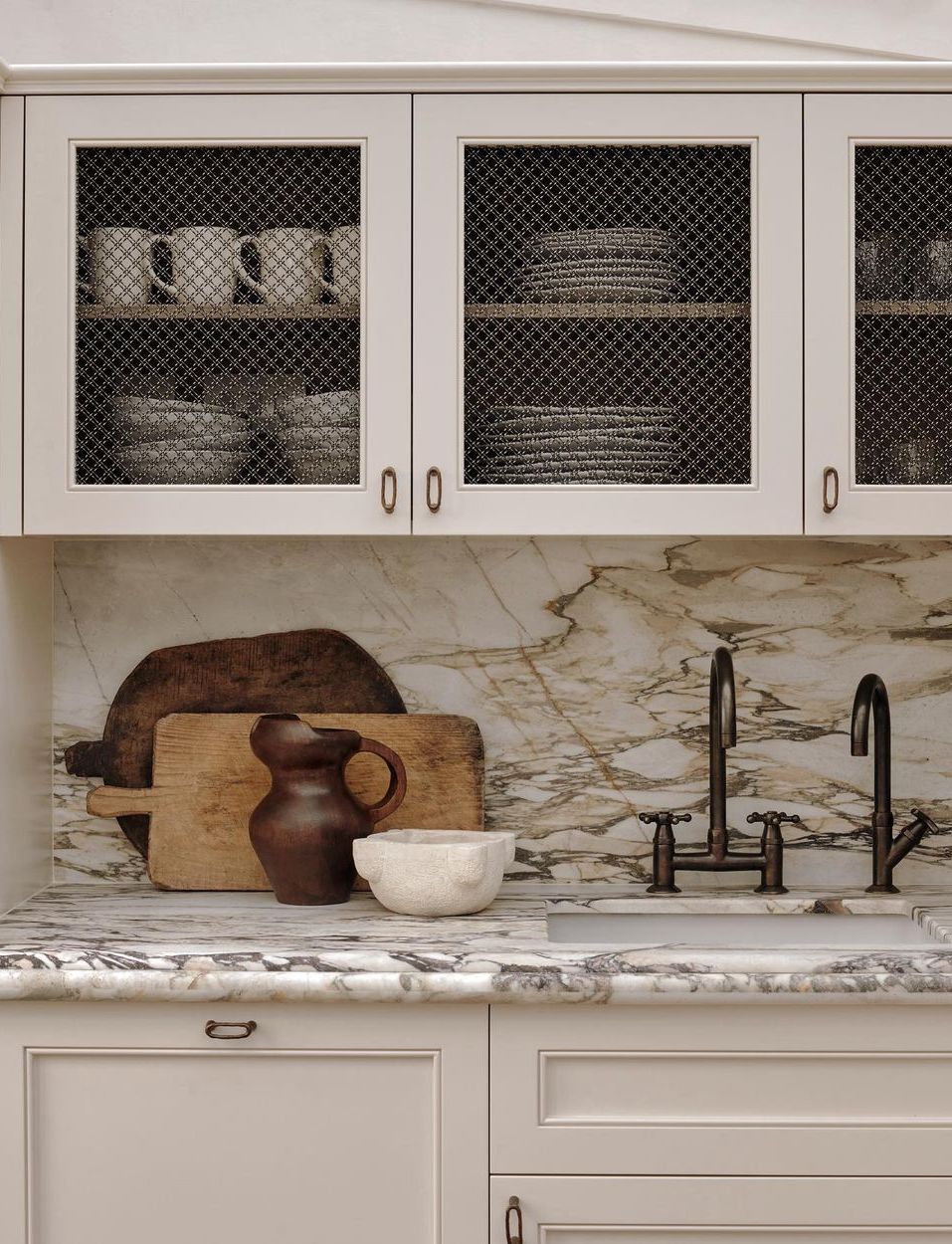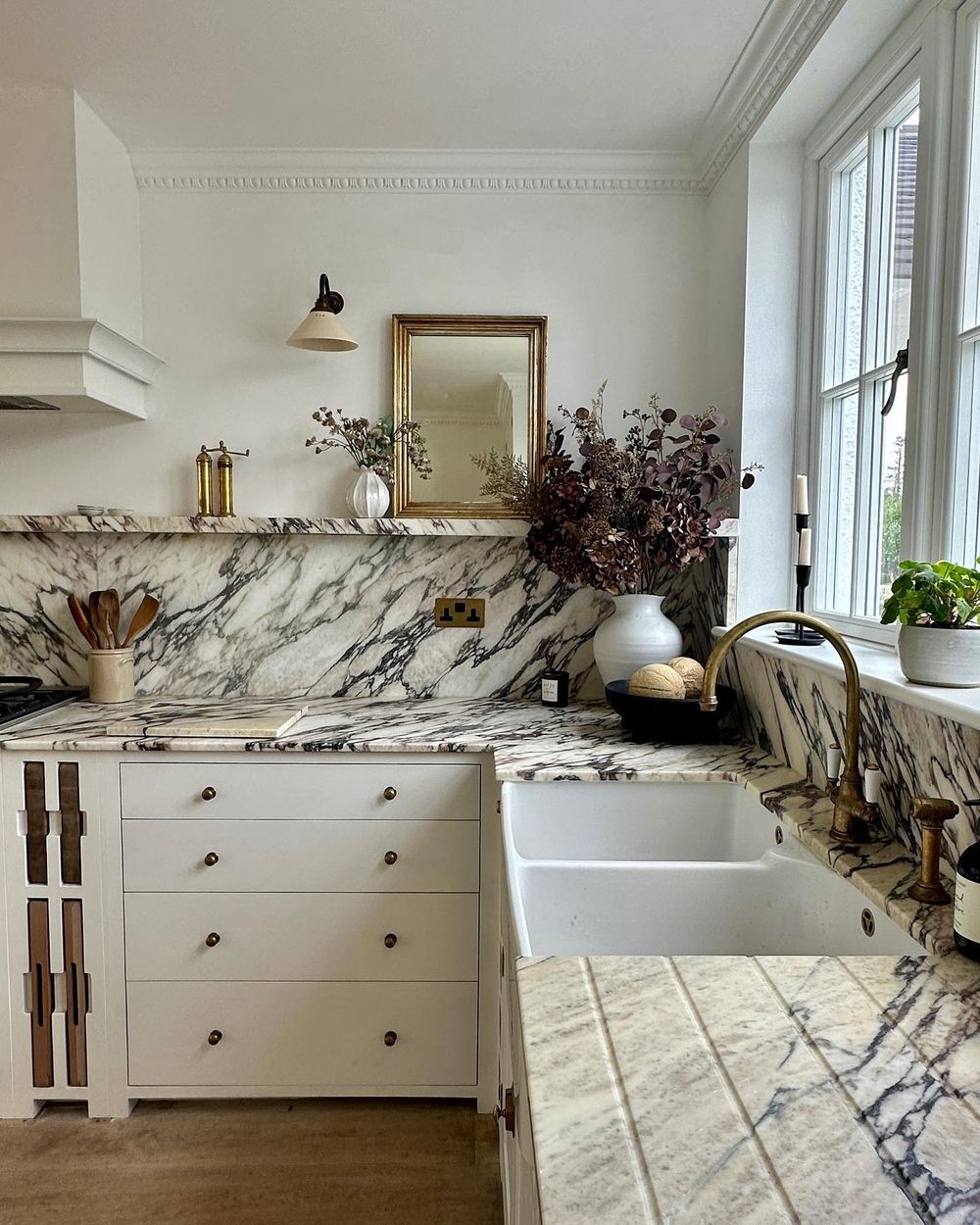First and foremost, marble is a natural stone, so each piece is unique. You’ll also find that it’s more heat-resistant than other materials like granite, making it a good choice if you do a lot of cooking. Marble is also very easy to clean. Just a little soap and water are all you need.
However, there are a few downsides to marble countertops as well. They are susceptible to staining, so you’ll need to be careful with spillage. Marble is also a softer material so it can scratch and chip more easily than other countertop options.
Despite these drawbacks, many homeowners still choose marble countertops for their kitchens because of their unique beauty and elegance. If you’re willing to take care of it, marble can make a stunning countertop addition to your home.
Cracks and Fissures
Marble countertops can be susceptible to cracks and fissures. These defects are usually caused by stressors such as thermal expansion, impact, or poor installation. Cracks and fissures can weaken the countertop and make it more susceptible to breakage.
Sometimes, they can also allow moisture to penetrate the surface, leading to staining or mold growth. To avoid these problems, inspecting marble countertops regularly for any signs of damage is essential. If a crack or fissure is discovered, a qualified professional should repair it as soon as possible.
Staining & Absorption
One potential issue with marble kitchen countertops is staining. Because marble is a porous material, it can absorb spills and stains immediately if they are not cleaned up. Another potential issue is etching. Etching occurs when acidic substances come into contact with the surface of the marble and eat away at the polished finish.
While etching is not usually visible right away, it can dull the countertop’s appearance over time. To avoid these problems, it is essential to wipe up spills promptly and use coasters or trivets to protect the surface from heat and acidic liquids.
Sealing
As any homeowner knows, countertops take a lot of abuse. They’re constantly exposed to spills, scratches, and heat damage. Over time, even the most durable materials can start to show wear and tear. That’s why it’s essential to seal your marble countertops regularly.
Sealing helps protect the surface from damage and makes it easier to clean. Plus, it can give your countertops a glossy finish, making them stand out. If you’re not sure how to seal your marble countertops, ask a professional for help. They’ll be able to advise you on the best products and techniques to use.




